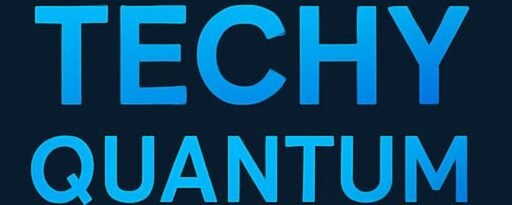The sudden resignation of xAI legal chief Robert Keele has sent ripples through Silicon Valley, not just because of his role in one of the fastest growing AI companies, but also because of the deeply personal reasons behind his exit. Keele, who joined Elon Musk’s artificial intelligence venture in May 2024, cited family priorities and philosophical differences as key drivers of his decision a move that reveals the complex human side of leadership in high stakes tech environments.
When Keele accepted the role of xAI legal chief, he left behind his own newly formed legal practice, Keele Law, after just three weeks in operation. At the time, he described his opportunity to work with Musk as “the adventure of a lifetime,” and the move seemed to signal a long-term commitment to shaping the legal foundation of a company poised for massive growth.
His tenure coincided with several defining milestones, May 2024 xAI secured a $6 billion Series B funding round from industry giants like Andreessen Horowitz and Sequoia Capital, valuing the company at $24 billion.
March 2025: xAI acquired X (formerly Twitter) in a deal that placed xAI’s valuation at $80 billion and X at $33 billion. In under a year, Keele was at the legal helm during unprecedented corporate expansion, overseeing regulatory compliance, intellectual property protections, and governance issues for one of the world’s most closely watched AI startups.
Why Stepping Away Matters in Tech Leadership
Keele’s exit isn’t just a high profile resignation it’s a case study in the growing tension between personal well being and the relentless demands of tech leadership. In his farewell note, he admitted, I love my two toddlers and I don’t get to see them enough. I couldn’t keep riding two horses at once the family and the job.
This mirrors other high level departures in the tech world. For instance, former YouTube CEO Susan Wojcicki stepped down in 2023 to focus on family and personal projects. These stories highlight a trend where even top executives are increasingly prioritizing work life balance over career acceleration.
Dr. Elaine Morrison, a leadership psychologist specializing in tech industry burnout, told Tech Perspectives, When executives like the xAI legal chief make decisions based on family priorities, it challenges the unspoken rule that top roles require sacrificing personal life entirely. It sends a powerful cultural signal.
Navigating Daylight Between Worldviews
While Keele cited family as the primary reason for leaving, he also acknowledged daylight between our worldviews with Musk. This phrase hints at potential disagreements over strategic, legal, or ethical approaches within xAI.
Conflicts between legal teams and visionary founders are not uncommon. Legal chiefs often serve as guardrails, ensuring compliance and risk management, while founders like Musk push aggressively toward ambitious, sometimes controversial, goals. Balancing those forces is a delicate dance and when alignment is missing, friction can escalate.
Brad Smith, Microsoft’s president and chief legal officer, has spoken publicly about moments when legal perspectives clashed with leadership vision, requiring compromise without losing ethical grounding. Keele’s departure could be an example of when such compromise becomes untenable.
The Impact on xAI’s Legal Strategy
Losing the xAI legal chief during a phase of rapid growth raises questions about continuity in legal strategy. xAI’s recent acquisition of X, valued at $33 billion, brings complex integration challenges from merging corporate structures to harmonizing user data policies across platforms.
Industry analysts note that legal leadership transitions at this stage could either slow down aggressive expansion or open the door for a leader more closely aligned with Musk’s vision.
Mark Hollander, a venture capital advisor specializing in AI startups, says, In fast-scaling companies, legal chiefs are the unsung heroes. Their job is not just about contracts and compliance; it’s about protecting the company from existential risks. Replacing someone with Keele’s institutional knowledge will not be easy.
As someone who has worked alongside corporate executives making similar choices, I’ve seen the emotional weight of stepping down from a prestigious role. It’s not just a career move it’s a deeply personal decision that can trigger identity shifts, self doubt, and relief all at once.
Keele’s public acknowledgment of his toddlers’ importance resonates with thousands of working parents in high pressure industries. In an era where remote work has blurred boundaries, his choice serves as a reminder that presence is not just physical it’s emotional and intentional.
Lessons for Leaders and Organizations
Keele’s story offers key takeaways for both aspiring leaders and companies navigating the high growth phase.
1. Values Alignment is Critical Misalignment between a leader’s ethical or strategic vision and the company’s direction can create long term friction. Addressing this early can prevent abrupt departures.
2. Succession Planning Matters High growth companies should always have a contingency plan for replacing key executives without disrupting momentum.
3. Work Life Balance is Non Negotiable Leaders who openly prioritize family may inspire cultural change, attracting talent that values sustainability over burnout.
What’s Next for Keele and xAI?
Keele hasn’t revealed his next move, but his skills and network make him a sought after figure in tech law. Whether he returns to private practice, joins another startup, or shifts toward advisory roles, his departure will be closely watched.
For xAI, the immediate challenge will be finding a new xAI legal chief who can manage the intricate legal landscape of AI innovation, regulatory scrutiny, and corporate mergers while aligning with Musk’s ambitious, sometimes controversial, trajectory.
Robert Keele’s resignation is more than just another headline about Silicon Valley’s executive churn. It’s a deeply human moment that blends ambition, principle, and love for family a reminder that even in the race to dominate the future of AI, the most important decisions can be the ones that keep us grounded in the present.

